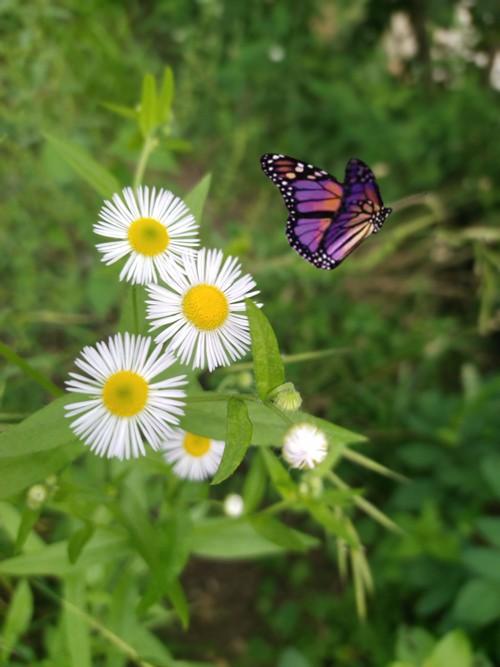What would happen if there were no insects in a flower garden
If there were no insects in a flower garden, it would have significant consequences for the garden’s ecosystem and the plants themselves. Insects play crucial roles in pollination, nutrient cycling, and maintaining the overall health and balance of ecosystems. Here’s how the absence of insects could impact a flower garden:
- Pollination Decline: Insects, especially bees, butterflies, and other pollinators, are primary agents of pollination for many flowers. Without insects, the transfer of pollen between flowers would be severely limited, leading to reduced seed and fruit production in flowering plants. This could result in a decline in the number and variety of flowers in the garden.
- Flower Reproduction: Many flowers rely on insect pollination to reproduce and set seeds. Without pollinators, some plants might struggle to produce seeds, leading to decreased plant population and genetic diversity in the garden.
- Plant Diversity: Insects help in cross-pollination, which encourages genetic diversity in plants. Without insect pollinators, plants might rely more on self-pollination, reducing genetic variation and potentially weakening the overall health of the garden.
- Ecosystem Disruption: Insects are part of the garden’s food web. They serve as a food source for birds, spiders, and other predators. The absence of insects could disrupt this food chain and impact the populations of animals that depend on insects for sustenance.
- Nutrient Cycling: Insects contribute to nutrient cycling by breaking down dead plant material and returning nutrients to the soil. Without insects, the process of decomposition could slow down, affecting soil fertility and plant growth.
- Aesthetic Value: Insects contribute to the visual appeal of flower gardens by actively moving among flowers. Their absence could result in a less vibrant and dynamic garden environment.
- Plant Health: Some insects, such as ladybugs and lacewings, are natural predators of garden pests. Without these predators, pest populations could increase, leading to potential damage to plants and reduced overall garden health.
- Interactions and Adaptations: Insects and flowers have co-evolved over millions of years. Flowers have developed specific shapes, colors, and fragrances to attract certain pollinators. Without these interactions, some flowers might lose their specialized features, impacting their reproductive success.

In summary, the absence of insects in a flower garden would disrupt pollination, nutrient cycling, and the overall balance of the ecosystem. It could lead to decreased flower diversity, reduced plant reproduction, and potential cascading effects throughout the garden’s ecosystem. This emphasizes the importance of conserving insect populations for the health and sustainability of natural environments.
What would happen to plants if there were no insects in a garden?
If there were no insects in a garden, it would have significant consequences for the plants and the overall ecosystem of the garden. Insects play essential roles in pollination, nutrient cycling, and pest control, all of which contribute to the health and vitality of plants. Here’s how the absence of insects could impact plants in a garden:
- Pollination Decline: Insects are crucial pollinators for many plants, transferring pollen from one flower to another, which allows plants to reproduce and produce fruits and seeds. Without insects, plants that rely on insect pollination would struggle to reproduce, leading to decreased seed and fruit production.
- Plant Reproduction: The absence of insect pollinators could result in decreased genetic diversity among plants. Cross-pollination, which occurs when pollen from one plant fertilizes another plant’s flowers, is essential for maintaining genetic variety within plant populations. Without insects to facilitate cross-pollination, plants might rely more on self-pollination, leading to genetic uniformity and potentially reducing their ability to adapt to changing conditions.
- Seed Production: Insects also aid in dispersing seeds by consuming fruits and then excreting the seeds in different locations. Without this dispersal mechanism, some plant species might struggle to spread and establish new populations.
- Pest Control: Many insects are natural predators of plant-eating pests. Without these predators, pest populations could increase, leading to greater damage to plants. This could negatively impact the health and appearance of garden plants.
- Nutrient Cycling: Insects contribute to nutrient cycling by breaking down dead plant material and returning nutrients to the soil. Without insects, the decomposition process could slow down, affecting soil health and the availability of nutrients for plant growth.
- Plant Diversity: Some plants have evolved specialized relationships with certain insect species. For example, certain plants might attract specific pollinators through their colors or scents. The absence of these insects could disrupt these interactions and impact the diversity of plants in the garden.
- Ecosystem Balance: Insects are a crucial component of the garden’s food web. They serve as a food source for birds, mammals, and other animals. The loss of insects could disrupt the predator-prey relationships and lead to imbalances in the ecosystem.
- Aesthetic Value: Insects contribute to the beauty of garden environments as they move among flowers and plants. Their absence could lead to a less vibrant and lively garden setting.
In summary, the absence of insects in a garden would disrupt pollination, reproduction, pest control, nutrient cycling, and overall ecosystem balance. Plants would face challenges in reproducing, maintaining genetic diversity, and dealing with pests. This highlights the vital role that insects play in supporting plant life and the need to conserve their populations for the health of ecosystems. The importance of insects for the world >>





